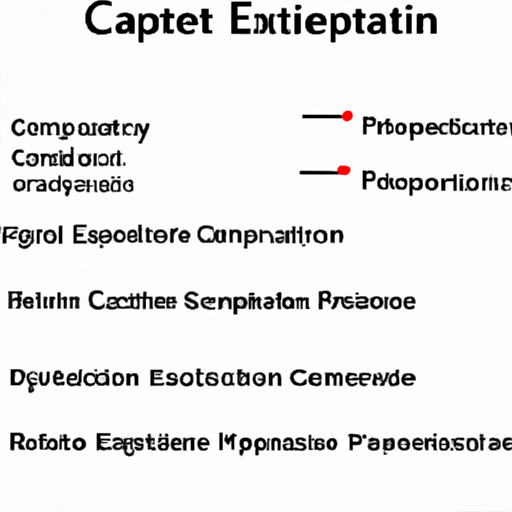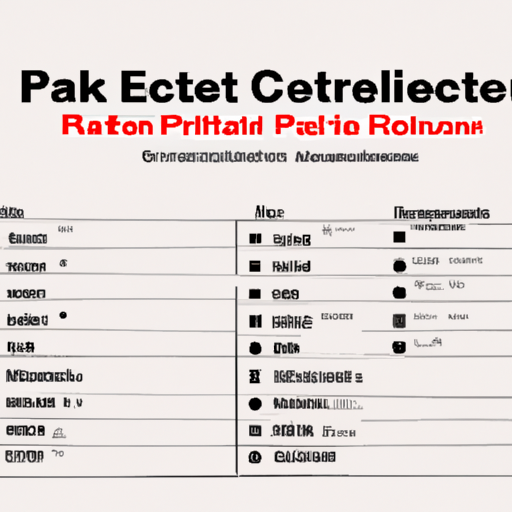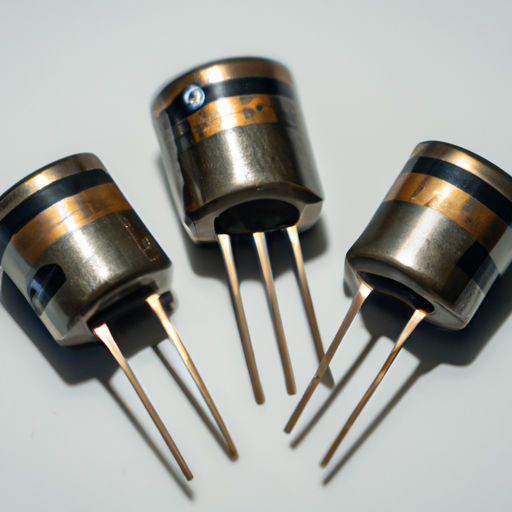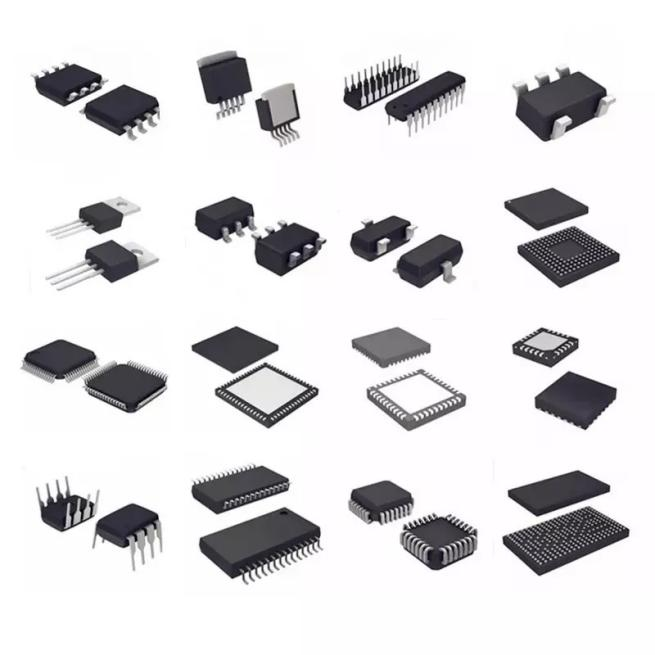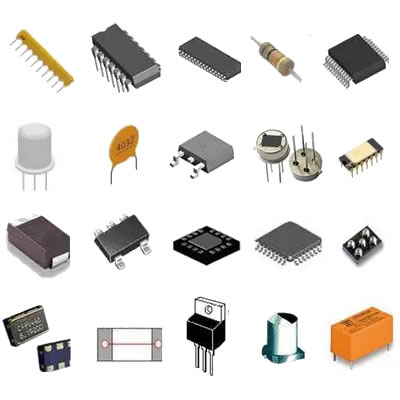What are the important product categories for capacitor discharge?
Important Product Categories for Capacitor Discharge
I. Introduction
Capacitors are fundamental components in electronic circuits, serving as energy storage devices that can release energy quickly when needed. This process, known as capacitor discharge, is crucial in various applications across multiple industries. Understanding the important product categories for capacitor discharge not only highlights the versatility of capacitors but also underscores their significance in modern technology. In this article, we will explore the basics of capacitor discharge, delve into key product categories, and discuss emerging trends in capacitor technology.
II. Basics of Capacitor Discharge
A. Explanation of Capacitor Functionality
A capacitor consists of two conductive plates separated by an insulating material, known as a dielectric. When voltage is applied, the capacitor stores electrical energy in the form of an electric field. The amount of energy stored is proportional to the capacitance and the voltage applied. When the capacitor is connected to a circuit, it can discharge this stored energy, providing a quick burst of power.
B. The Process of Discharge
The discharge process occurs when the capacitor is connected to a load, allowing the stored energy to flow through the circuit. The rate of discharge depends on the capacitance, the resistance of the load, and the initial voltage across the capacitor. This rapid release of energy is essential in applications where immediate power is required, such as in power electronics and consumer devices.
C. Applications of Capacitor Discharge in Various Industries
Capacitor discharge plays a vital role in numerous applications, from powering electronic devices to stabilizing voltage in power systems. Understanding the specific product categories that rely on capacitor discharge helps to appreciate the breadth of their impact across different sectors.
III. Key Product Categories for Capacitor Discharge
A. Power Electronics
1. Overview of Power Electronics
Power electronics involves the control and conversion of electrical power using electronic devices. Capacitors are integral to these systems, providing energy storage, filtering, and voltage regulation.
2. Role of Capacitors in Power Supply Systems
In power supply systems, capacitors help smooth out voltage fluctuations, store energy for quick release, and filter out noise. They are essential for maintaining stable operation in various applications, including renewable energy systems and electric grids.
3. Examples of Products: Inverters, Converters, and Power Supplies
Key products in this category include inverters, which convert DC to AC power; converters, which change voltage levels; and power supplies that provide stable voltage to electronic devices. Capacitor discharge is critical in these products, ensuring efficient energy transfer and reliable performance.
B. Consumer Electronics
1. Importance of Capacitors in Everyday Devices
Capacitors are ubiquitous in consumer electronics, where they enhance performance and reliability. They are used in devices ranging from smartphones to laptops, playing a crucial role in power management and signal processing.
2. Examples of Products: Smartphones, Laptops, and Home Appliances
In smartphones, capacitors help manage power consumption and improve audio quality. Laptops utilize capacitors for energy storage and to stabilize power delivery. Home appliances, such as washing machines and refrigerators, rely on capacitors for efficient motor operation and control.
3. Impact of Capacitor Discharge on Device Performance
The ability of capacitors to discharge quickly allows consumer electronics to perform tasks that require sudden bursts of power, such as camera flashes or audio amplification. This capability enhances user experience and device functionality.
C. Automotive Applications
1. Role of Capacitors in Modern Vehicles
In the automotive industry, capacitors are essential for various electronic systems, including engine control units, infotainment systems, and safety features. They help manage power distribution and improve overall vehicle performance.
2. Examples of Products: Electric Vehicles, Hybrid Systems, and Safety Features
Electric vehicles (EVs) and hybrid systems rely on capacitors for energy storage and management, enabling efficient operation and extended range. Safety features, such as airbags and anti-lock braking systems, also depend on capacitors for rapid energy discharge during critical moments.
3. Importance of Capacitor Discharge in Automotive Electronics
Capacitor discharge is vital in automotive applications, where quick response times can be life-saving. The ability to deliver power instantly enhances the reliability and safety of modern vehicles.
D. Industrial Equipment
1. Overview of Industrial Applications
In industrial settings, capacitors are used in various applications, including motor drives, robotics, and automation systems. They play a crucial role in improving efficiency and performance.
2. Examples of Products: Motor Drives, Robotics, and Automation Systems
Motor drives utilize capacitors to manage power delivery and improve motor efficiency. Robotics systems rely on capacitors for precise control and rapid response. Automation systems benefit from capacitors in their power supply and control circuits.
3. Significance of Capacitor Discharge in Industrial Efficiency
The ability to discharge energy quickly allows industrial equipment to operate more efficiently, reducing energy consumption and improving productivity. Capacitor discharge is essential for maintaining optimal performance in demanding industrial environments.
E. Renewable Energy Systems
1. The Growing Importance of Capacitors in Renewable Energy
As the world shifts towards renewable energy sources, capacitors are becoming increasingly important in energy management systems. They help store and release energy generated from sources like solar and wind.
2. Examples of Products: Solar Inverters, Wind Turbines, and Energy Storage Systems
Solar inverters use capacitors to manage energy flow from solar panels to the grid. Wind turbines rely on capacitors for power conversion and stabilization. Energy storage systems, such as batteries, often incorporate capacitors to enhance performance and efficiency.
3. Role of Capacitor Discharge in Energy Management
Capacitor discharge is critical in renewable energy systems, where it helps balance supply and demand. By providing quick bursts of energy, capacitors ensure a stable and reliable power supply, contributing to the overall efficiency of renewable energy systems.
F. Medical Devices
1. Importance of Reliability in Medical Equipment
In the medical field, reliability is paramount. Capacitors play a crucial role in ensuring that medical devices operate correctly and safely.
2. Examples of Products: Imaging Systems, Monitoring Devices, and Therapeutic Equipment
Medical imaging systems, such as MRI and ultrasound machines, rely on capacitors for power management and signal processing. Monitoring devices, like ECG machines, use capacitors to ensure accurate readings. Therapeutic equipment, such as defibrillators, depends on capacitors for rapid energy discharge.
3. Capacitor Discharge in Critical Medical Applications
The ability to discharge energy quickly is vital in medical applications, where timely intervention can save lives. Capacitors ensure that medical devices function reliably, providing critical support in healthcare settings.
IV. Emerging Trends in Capacitor Technology
A. Advancements in Capacitor Materials
Recent advancements in capacitor materials, such as the development of high-capacitance and low-loss dielectrics, are enhancing performance and efficiency. These innovations are paving the way for more compact and powerful capacitors.
B. Miniaturization and Increased Efficiency
The trend towards miniaturization in electronics is driving the development of smaller, more efficient capacitors. This trend is particularly important in consumer electronics and automotive applications, where space is at a premium.
C. The Role of Capacitor Discharge in Future Technologies
As technology continues to evolve, the role of capacitor discharge will become increasingly important. Emerging applications, such as electric vehicles and renewable energy systems, will rely on advanced capacitor technology to meet growing energy demands.
V. Conclusion
In conclusion, capacitor discharge is a critical process that underpins a wide range of products across various industries. From power electronics to medical devices, capacitors play an essential role in ensuring reliable performance and efficiency. As technology advances, the importance of capacitor discharge will only continue to grow, driving innovation and shaping the future of electronic systems. Understanding the key product categories for capacitor discharge not only highlights the versatility of capacitors but also emphasizes their significance in modern technology.
VI. References
A. Suggested Reading and Resources
- "Capacitor Technology: A Comprehensive Guide" by John Doe
- "The Role of Capacitors in Power Electronics" - IEEE Journal
B. Industry Reports and Studies
- "Global Capacitor Market Analysis" - Market Research Report 2023
- "Advancements in Capacitor Technology" - Tech Innovations Journal
C. Relevant Standards and Guidelines
- IEC 61071: Standard for Capacitors
- IEEE 18: Standard for the Measurement of Capacitor Losses
This blog post provides a comprehensive overview of the important product categories for capacitor discharge, highlighting their significance across various industries and applications.

